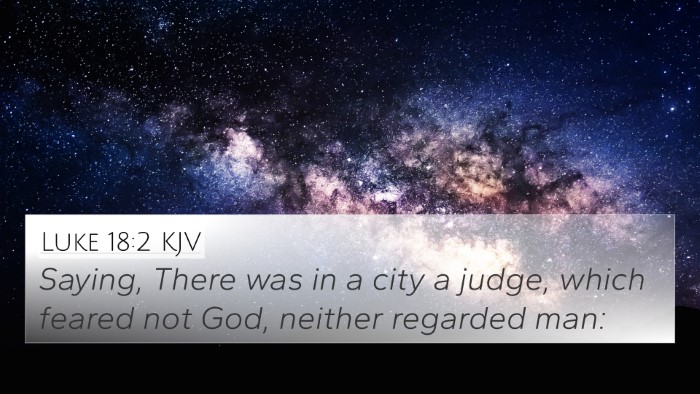Biblical Interpretation of Genesis 42:18
Verse Context: Genesis 42:18 states, "And Joseph said to them the third day, 'Do this and live, for I fear God.'
Understanding the Meaning
This verse occurs during the time when Joseph, having been sold into slavery, now stands as governor in Egypt and encounters his brothers, who sought food amidst a famine. The phrase "Do this and live" signals the seriousness of the situation and the authority Joseph holds. It also emphasizes the integration of ethical conduct with divine belief—a fundamental principle running throughout the Bible.
Commentary Insights
-
Matthew Henry: Henry emphasizes Joseph’s role as a man of integrity, suggesting that Joseph reflects God's fear and establishes righteousness in his dealings. This is a pivotal moment showcasing leadership and moral responsibility.
-
Albert Barnes: Barnes notes that Joseph's command was a test of their character and integrity. The reference to God's fear reveals Joseph’s understanding of divine providence and morality, distinguishing between mere survival and true living.
-
Adam Clarke: Clarke highlights the theological implications of fearing God. He addresses that it serves as a divine recommendation for protection and moral vigilance, stating that a person aligned with God will guide their path toward life and righteousness.
Thematic Bible Verse Connections
Genesis 42:18 invites connections across various scriptures that deal with the concept of divine fear, ethical living, and righteousness.
Related Bible Cross-References
- Proverbs 1:7 – "The fear of the Lord is the beginning of knowledge..." - this emphasizes the importance of reverence toward God in gaining wisdom.
- Deuteronomy 10:12 – "And now, Israel, what does the Lord your God ask of you..." - underscores how fearing God aligns with obedience to His commandments.
- Isaiah 33:6 – "He will be the stability of your times..." - connects stability in life through the fear of the Lord.
- Matthew 10:28 – "And do not fear those who kill the body but cannot kill the soul..." - a New Testament echo of fearing God above all else.
- Hebrews 12:28-29 – "Therefore let us be grateful for receiving a kingdom that cannot be shaken..." - emphasizes reverence and awe for God.
- Acts 9:31 – "So the church throughout all Judea and Galilee and Samaria had peace and was being built up..." - signifies the unity and strength of the early Church rooted in the fear of God.
- 1 Peter 2:17 – "Honor everyone. Love the brotherhood. Fear God." - an exhortation to maintain Godly fear while living righteously.
Inter-Biblical Dialogue
Through the lens of Genesis 42:18, we observe a vibrant dialogue between the Old and New Testament themes surrounding the fear of God, ethical matters, and divine providence. This reflects a consistency of God’s nature and requirements for His people across the biblical narrative.
Exploring Biblical Themes through Cross-References
The relation between Genesis 42:18 and the specified cross-references offers a deeper understanding of the complexities of obedience to God. For example:
- Understanding Fear: How do the themes of fear in Genesis resonate with the admonitions found in Proverbs?
- Ethical Conduct: Linking Joseph’s leadership principles with the teachings of Jesus in Romans and Hebrews.
- Divine Providence: Assessing the Lord's provision from Genesis through the Gospels as a consistency in God’s character.
Tools for Bible Cross-Referencing
In studying passages such as Genesis 42:18, utilizing various tools can enhance one's understanding:
- Bible concordances can provide comprehensive lists of related verses.
- Cross-reference Bibles allow for easy navigation between thematic connections.
- Online Bible study resources and applications help in identifying modern-day applications of biblical principles.
Conclusion
Genesis 42:18 encapsulates key principles in the biblical narrative concerning the importance of fearing God and living ethically. As we explore thematic Bible verse connections, we recognize the profound relationship between the Old and New Testament teachings, further enriched through tools like concordances and cross-reference guides.
By studying the cross-references and engaging in a comparative analysis of related scriptures, believers can foster a deeper understanding of their faith and the divine purposes embedded within God’s Word.








